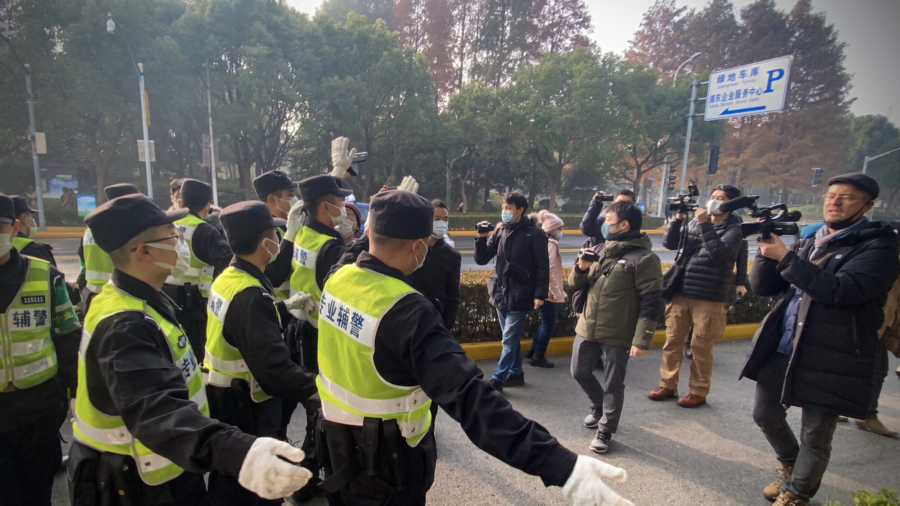The Chinese regime and the United States have agreed to ease visa restrictions for reporters from their respective countries, a spokesperson for the U.S. State Department said on Nov. 16.
The agreement was reached after the State Department “pressed” Beijing for months on bilateral issues that had been “longstanding roadblocks” and “longstanding concerns” for the United States, such as media access and visa issues, the spokesperson told The Epoch Times in a statement.
Both sides agreed to issue yearlong visas to each other’s journalists. China has committed to issuing visas for a “group of U.S. reporters,” and the United States is set to reciprocate by issuing visas to Chinese journalists who are “eligible for the visa under U.S. law.”
“The PRC [People’s Republic of China] committed to permit U.S. journalists already in the PRC to freely depart and return, which they had previously been unable to do. We plan to facilitate similar treatment,” according to the statement.
The dispute between China and the United States about media access stems from how differently Beijing sees journalism. Inside China, the media environment is restrictive and the Chinese Communist Party (CCP) puts pressure on reporters and media outlets to self-censor in favor of the one-party state for so-called “social stability.” Chinese state-run media are still beholden to the Party when operating outside of China.
To that end, the Chinese regime expelled three Wall Street Journal reporters in February last year, a decision made in retaliation over the publication’s column headlined “China Is the Real Sick Man of Asia.”
A month later, the communist regime announced it would expel more U.S. journalists, following a decision by the Trump administration to designate five Chinese state-run media outlets as “foreign missions,” identifying them as propaganda organs of the CCP. By the end of October 2020, 10 more Chinese state-run outlets were slapped with the designation.
China escalated its retaliatory actions in September 2020, when it imposed new restrictions against more U.S. journalists, by delaying the renewal of their expiring press credentials.
In March, the Foreign Correspondents’ Club of China issued a report saying that Beijing used several tactics including intimidation and visa curbs to restrict foreign reporting in 2020.
One recent example of visa restriction happened earlier this month in Hong Kong, when the city’s authorities refused to renew the visa of Wong Sue-lin, a reporter working for The Economist.
In response, the Foreign Correspondents’ Club of Hong Kong issued a statement, calling on the Hong Kong government to “provide concrete assurances that applications for employment visas and visa extensions will be handled in a timely manner … and that the visa process for journalists will not be politicized or weaponized.”
One foreign journalist currently languishing in Chinese detention is Cheng Lei, who was arrested in August last year on suspicion of endangering China’s “national security.” Cheng is a Chinese-born, naturalized Australian citizen, and a news anchor for China’s state-run CGTN.
Media advocacy group Reporters Without Borders ranked China 177th out of 180 countries in its world press freedom index. As of Nov. 3, there were at least 122 journalists being detained inside China.
The agreement was first reported by China’s state-run media China Daily. Citing unnamed sources at China’s foreign ministry, China Daily said the agreement was reached before the virtual summit on Nov. 15 between President Joe Biden and Chinese leader Xi Jinping.
The two leaders did not make any breakthrough on issues concerning both countries. After the summit, a senior administration official said in a briefing that the two leaders “did not discuss visa issues in any sort of form.”
The White House did not respond to a request for comment.
“We welcome this progress but see it simply as initial steps,” the State Department spokesperson said.
“We will continue to work toward expanding access and improving conditions for U.S. and other foreign media, and we will continue to advocate for media freedom as a reflection of our democratic values.”
From The Epoch Times


